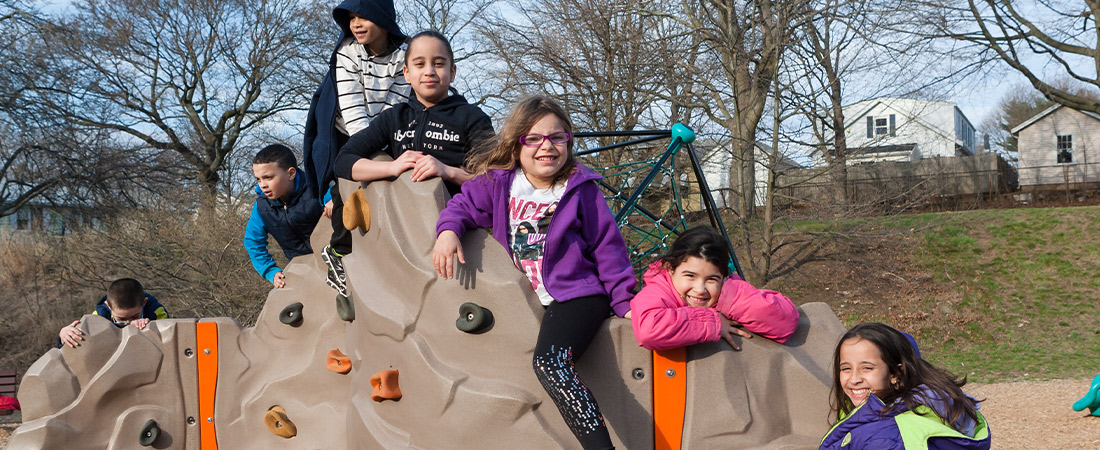
Powerful learning experiences often happen outside of the school day. EDC builds, implements, and evaluates out-of-school and nonformal programs that deliver core civic, educational, and life skills to young people in diverse environments.
In the United States, EDC’s support for out-of-school time (OST) and nonformal learning leverages children’s and youth’s strengths to help them succeed at school, engage in their communities, and lead productive and healthy lives. We design, evaluate, and provide technical assistance on high-quality OST programs that prepare young people for success—whether pursuing social and academic enrichment after school or leaving school and starting a first job.
Internationally, EDC develops and implements programs that support educational and economic opportunities for out-of-school youth. Working within the unique context of each country, we partner with governments, industry, and nongovernmental organizations to provide young people with the skills, knowledge, and opportunities they need to be market-ready and contribute to society.
Related Content
EDC Talks: How Do You Develop High-Quality Out-of-School-Time Programs?
Children can learn a lot from programs that take place outside of school hours.
4 Ways to Strengthen Youth Programs in Conflict and Crisis Areas
Building youth programs in unstable regions can be challenging. Here are four ideas for practitioners.
A Success Story in Senegal
Meet Adama Diedhiou, a participant in EDC’s workforce development program in Senegal.
A Second Chance at School in Mali
In Mali, accelerated education is helping thousands of children get back to school.
3 Ways to Stop the Summer Slide
Want to help kids keep learning this summer? Here are some tips for parents and caregivers.
New Entrepreneurs Launched in Rwanda
EDC’s workforce development efforts in Rwanda are helping young people build the skills for work.
Projects
Resources
Here are a few of our resources on out-of-school learning. To see more, visit our Resources section.
This report shares findings from EDC’s evaluation study of Cha-Ching Money Adventures.
This three-part series, funded by the National Science Foundation, features engaging activities that bring middle school youth outdoors to explore the natural world using observation, digital photo
This document outlines a bold new vision for EDC's next chapter of work and impact. Building upon our 65-year legacy of global impact in education,
This report presents findings from the evaluation of the 21st CCLC Program grantees who were active during 2018–2019.
This 2-page results document highlights the impact of India's dot-EDU T4 India program, which uses technology tools to improve learning gains among hard-to-reach populations.
Work Ready Now (WRN) is a versatile and modular skills curriculum designed to develop youth’s in-demand, transferable work readiness skills used in 28 countries and translated in 21 languages.
USAID Huguka Dukore Akazi Kanoze is helping to address youth unemployment by improving youth workforce readiness and employment opportunities for thousands of youth across Rwanda. This annual report presents an overview of the project as well as milestones reached during Year Two of implementation.
These free online training courses are designed to help entrepreneurs learn what they need to know to establish and grow a business. Users learn at their own pace in their own time.
This report covers EDC’s process evaluation of Year 1 of the iDesign project, a three-year NSF ITEST-funded project to engage underrepresented youth in designing interactive, culturally and sociall
The Committee on Successful Out-of-School STEM Learning, appointed by the National Research Council’s Board on Education, was charged with identifying effective out-of-school STEM settings and prog
